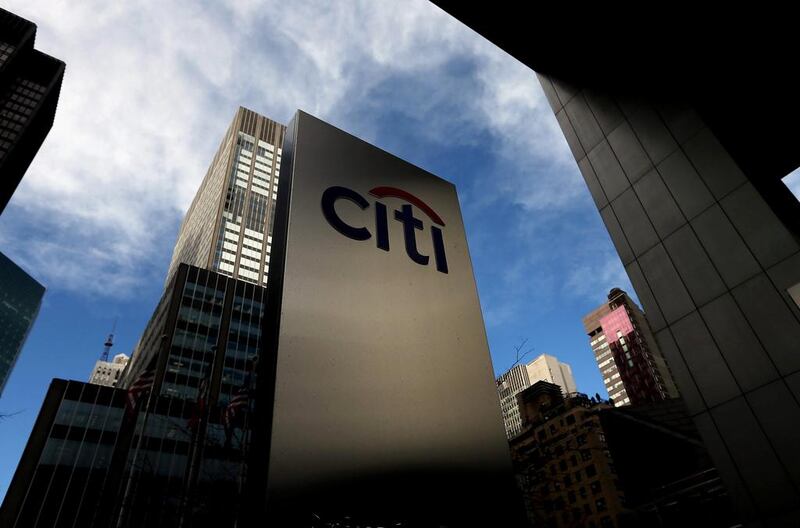Citigroup, which counts among its shareholders billionaire businessman Prince Alwaleed bin Talal detained this month in a crackdown on corruption by Saudi Arabia, will be fully operational in the kingdom in the first quarter of 2018 after an absence of more than a decade. It is looking to capitalise on opportunities in debt and equity capital markets, the lender's regional chief executive said.
“Saudi, is a country where we wanted to get back for a number of years,” Jim Cowles, Citi’s Europe, Middle East and Africa chief executive said at a media summit in London. “It’s something we are looking forward to.”
Citigroup, which was granted a Capital Market Authority (CMA) licences in April, will offer a full range of investment banking, debt and equity capital markets and research services to institutional clients.
Citi lost access to the largest Arab economy when it sold its stake in Samba Financial Group in 2004. The US-headquartered bank, which has operations in more than 160 countries and jurisdictions, will initially have 15 to 20 people present on the ground in the kingdom.
_____________
Read more:
[ Saudi anti-graft detainees will get due process of law, Saudi UN envoy says ]
[ New Saudi committee to investigate public corruption opens 'new era of transparency' ]
_____________
Saudi Arabia, Opec’s biggest oil producer and world’s top crude exporter has become an attractive market for the foreign banks, as Riyadh continues to overhaul economy after oil prices fell from the mid-2014 peak of US$115 per barrel.
The country, which still relies heavily on the sale of hydrocarbons for revenues, aims to increase the private sector's contribution to the economy and plans to privatise state assets that include energy giant Saudi Aramco. Riyadh has also tapped the local and international debt capital markets in the last two years to shore up finances and bridge its budget gap.
Citigroup has worked closely with the Saudi Arabia on debt issuances and was the global coordinator on the kingdom’s debut $17.5 billion bond offering 2016. It also worked as global bookrunner in the Riyadh’s sukuk offering.
Mr Cowles declined to comment on the recent political moves in the kingdom and the anti-corruption campaign in which some of the high profile businessmen and members of the royal family detained.
“We have our licence as far as capital market business [is concerned] we will continue to build that capability, we will continue to be positive in terms of economic growth in the country and continue to be positive on the business opportunities in the country,” he said.
Citigroup, which has close to 200 million customer accounts, had a record 2016 and expects its business to do better in 2017.
The “Middle East, has been very strong. This year it is so far ahead of last year and so we look forward to another record year based on what we have seen in the first ten months,” he noted.
The drop in oil prices, he said has changed the financing needs of many clients, whether sovereigns in the Arabian Gulf region, financial institutions or the local companies.
“They had to access capital markets and they had to look at privatisation and look at other way of getting the fiscal balance,” he said. In many ways, what is leading up to opening up of Middle East in terms of capital markets [business], and there’s more diversification in terms of the economy.”
These, he said, are positive developments which have boosted the bank’s business in the region.







